Case 13
- Author and Historian
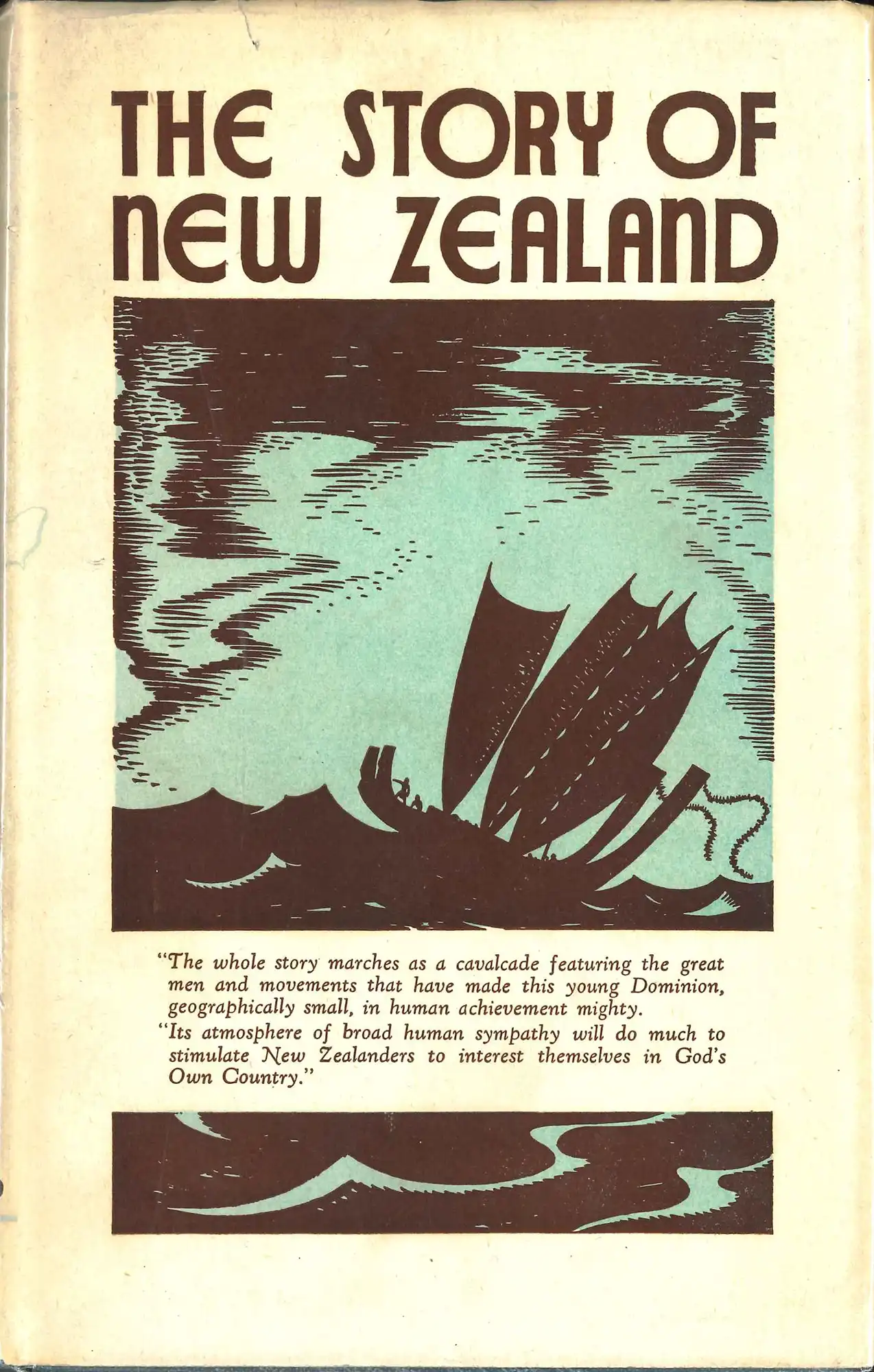
A.H. Reed. The story of New Zealand. Wellington: A.H. & A.W. Reed, 1945.
After his retirement A.H. Reed became a prolific writer, especially of popular historical works. Clif Reed, ever vigilant of a gap in the market, suggested that his uncle should write a history of New Zealand, suitable for the general reader and youth. First published in 1945, The story of New Zealand was a huge popular and commercial success that was reproduced in many editions including abridgements.
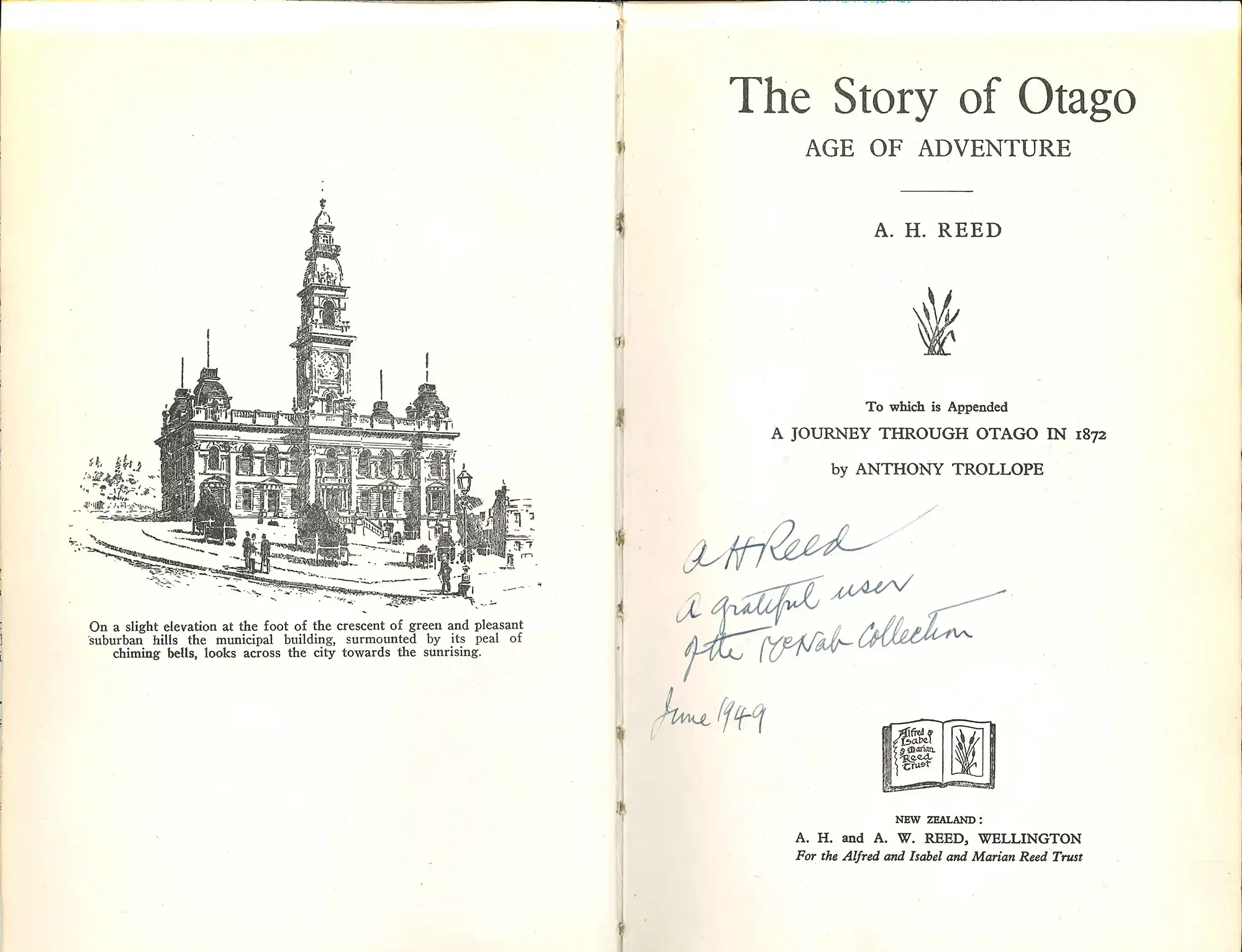
A.H. Reed. The story of Otago. Wellington: A.H. & A.W. Reed, 1947.
Reed followed The story of New Zealand with a history of his own province, Otago - his first of several regional histories. 1948 was to be Otago’s centenary year and the historian A.H. McLintock was appointed to write the official history of the province. Reed however saw the need for something to coincide with the March 1948 centenary celebrations and promptly produced The Story of Otago, which sold out before McLintock’s official history appeared in 1949.
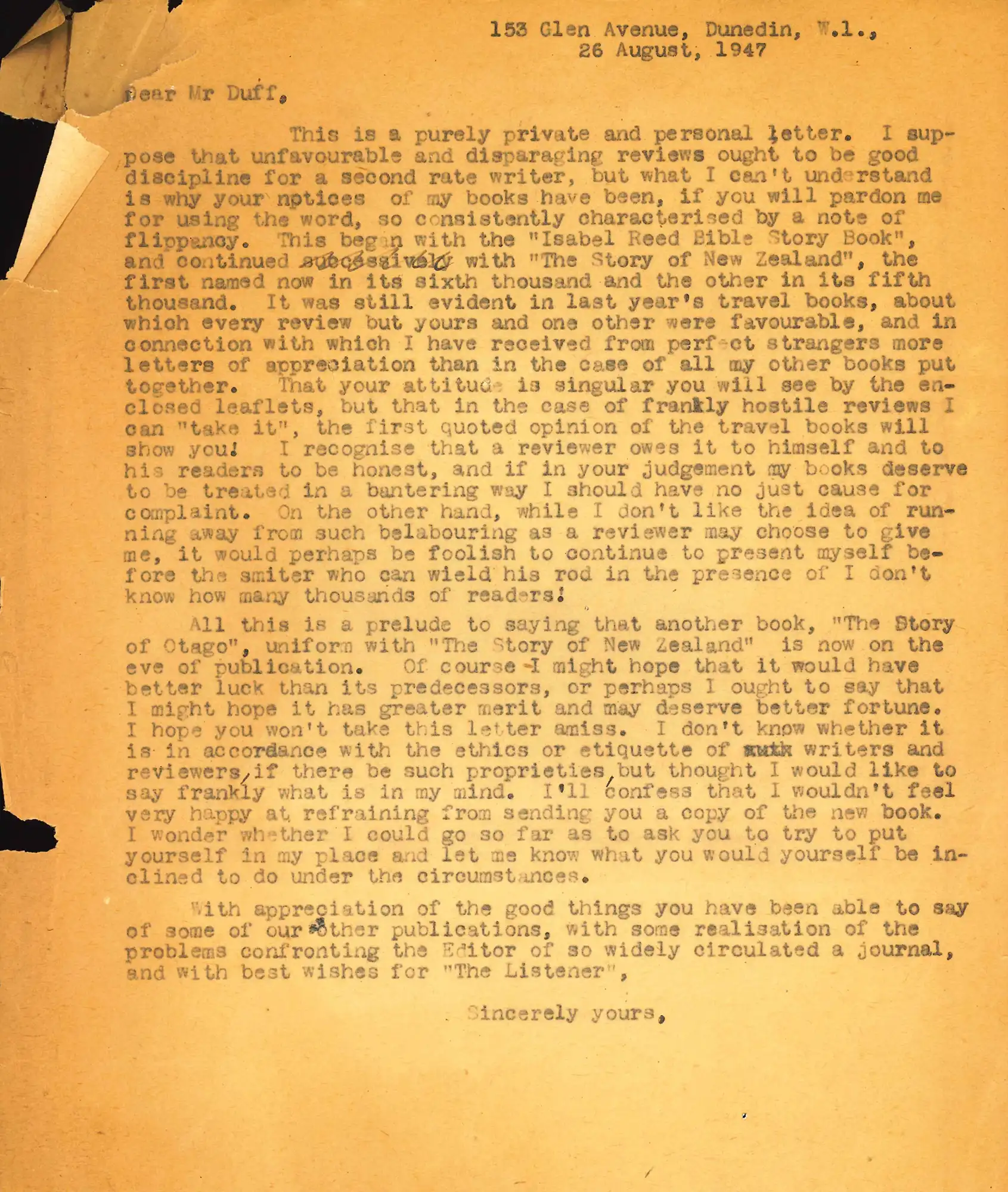
Letter, A.H. Reed to Oliver Duff, Wellington, 26 August 1947.
A.H. Reed’s popular approach to writing histories attracted strong criticism from certain quarters. One of his staunchest antagonists was the inaugural editor of the Listener, Oliver Duff (1883-1967). In the displayed letter, one of a series of testy exchanges between the pair, a clearly bewildered Reed is at a loss to understand Duff’s singularly unfavourable reviews when others are full of praise.
Far from holding back, the resolute Duff wrote in his ensuing book review: “The Otago of his book is not the Otago that most of us lived in, but a swept and garnished Otago of his Puritan imagination”. The correspondence deteriorated further into a clash between Reed’s piety and Duff’s late-life atheism.
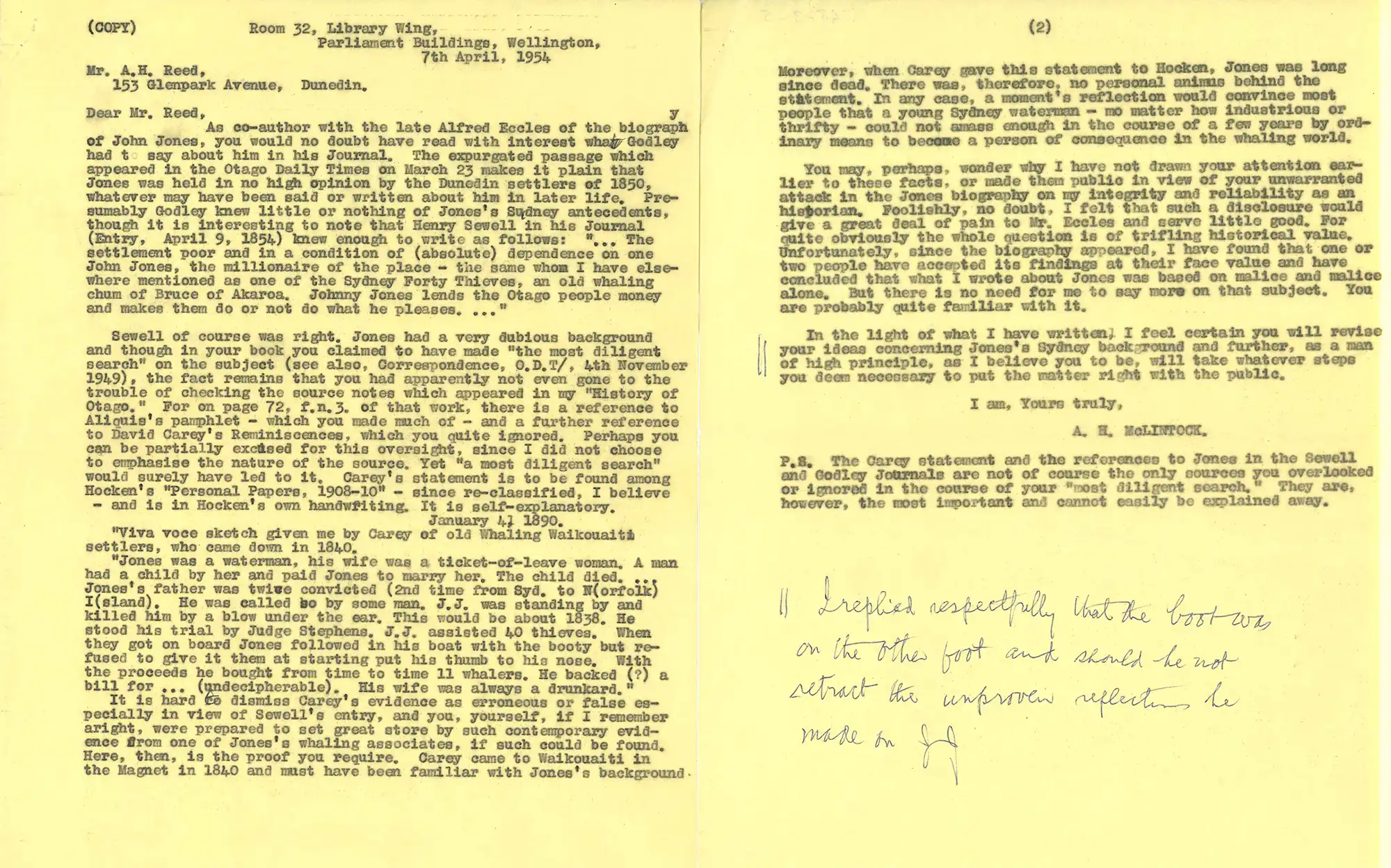
Letter, A.H. McLintock, Wellington to A.H. Reed, 7 April 1954.
Negative press reviews of Reed’s books were echoed by certain academic historians. The author of Otago’s official history, A.H. McLintock, took exception to Reed’s generous portrayal of the character of Waikouaiti pioneer Johnny Jones in the 1949 book John Jones of Otago. In his Otago history, published earlier that year, McLintock had depicted Jones as despotic and temperamental.
Reed and co-author Eccles (a descendant of Jones) were particularly unhappy with McLintock’s insinuation that Jones’ father was an Australian convict. After Eccles died in 1951, a series of testy exchanges by mail occurred between Reed and McLintock as to who had written the fairer account of Jones.
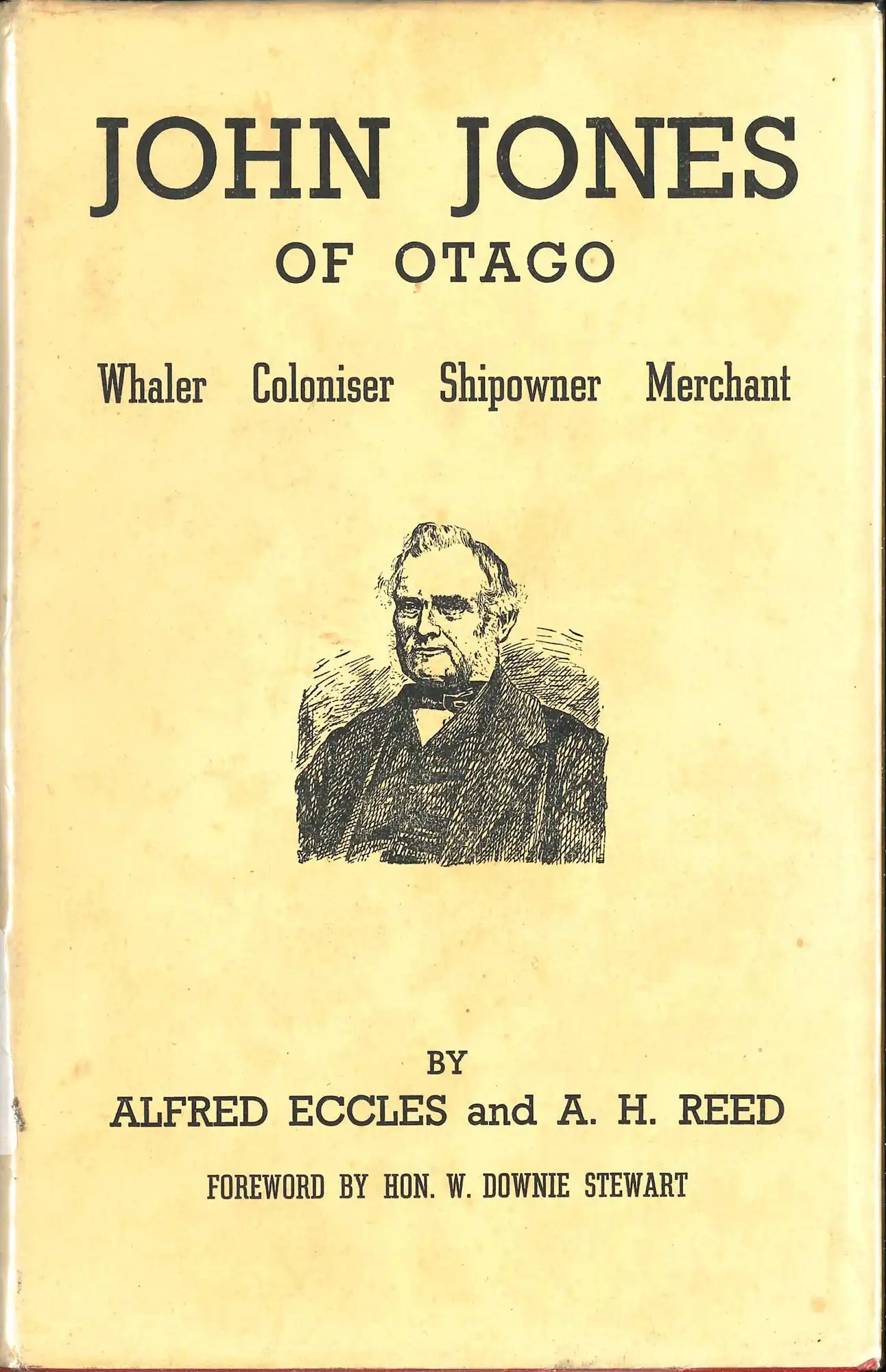
A.H. Reed. John Jones of Otago. Wellington: A.H. & A.W. Reed, 1949.




